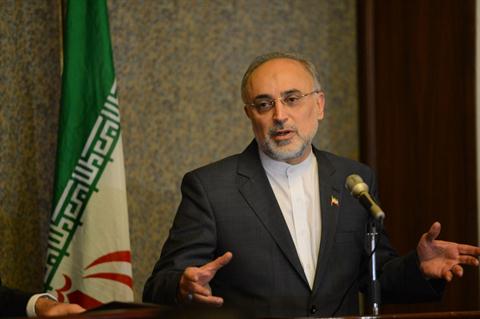
(AFP Photo)
The Egyptian capital market registered a gain on Monday amounting to EGP 5.9bn, after a series of losses that started last week.
The benchmark index EGX-30 climbed by 1.34%, while the broader index EGX-100 surged by 0.35%. EGX-70, which encompasses small and medium enterprises, dropped by 0.19%, however. Foreign investors were inclined to purchase stocks while Egyptian and Arab investors sought to sell.
According to stock market analysts, the sudden decline in oil prices resulted in a wave of losses in global capital markets, with Egypt no exception.
The stock market suffered a significant loss on Sunday, shedding some EGP 21.3bn in this week’s first trade session.
The market loss sequence started on 9 December, and continued through the 10 and 11 December, with the market witnessing its most significant loss on Sunday. Throughout those days, the benchmark index EGX-30 dropped from 9,557.93 points to 8715.92 points.
Hussein El-Sherbiny, managing partner at Pharos Holding for Financial Investments, attributed this decline to the drop in petrol prices, which reflected on the markets of the countries that depend on petroleum products’ sales.
“We are not the only market to witness this wave of decline,” El-Sherbiny said. “The drop in petrol prices has had a bigger influence on the economies of other countries.”
Despite the losses the stock market experienced, El-Sherbiny stressed that oil prices will have a good effect on the state budget. He added that foreign direct investments and pledged Gulf aid will not be influenced as well.
“Egypt has already experienced some difficult times so this provided some shield to it from this wave,” El-Sherbiny said.
Managing Partner and co-founder of investment firm Catalyst Partners Ali Al–Taheri agreed, saying that the Egypt is co-dependent on other markets.
“With the exception of Japan, who currently has a competitive advantage, markets in the US, Asia, Russia and the Gulf all experienced these losses at different ratios,” Al–Taheri added.
Al-Taheri explained that the drop in oil prices reflects a decline in the demand, which predicts slower rates of economic growth globally. He stated that this leads the capital markets to hedge against these changes and the reprising of stocks.
The Egyptian Exchange (EGX) has been participating in several events, hoping to attract and encourage new companies to list to the stock market through the main index or NILEX, the market for small and medium enterprises. Chairman of the EGX Mohamed Omran previously announced that the capital market hopes to enlist 10 new companies in 2014.
“Despite the exceptional circumstances witnessed by the market, we exceeded our target by listing 13 new companies during 2014, which is considered a valuable addition for the market depth, and one of the highest annual listed companies increase rates from a number of years,” Omran said.
“The total funding provided to increase the companies’ capital was more than EGP 11bn during in the last 14 months,” Omran added.



